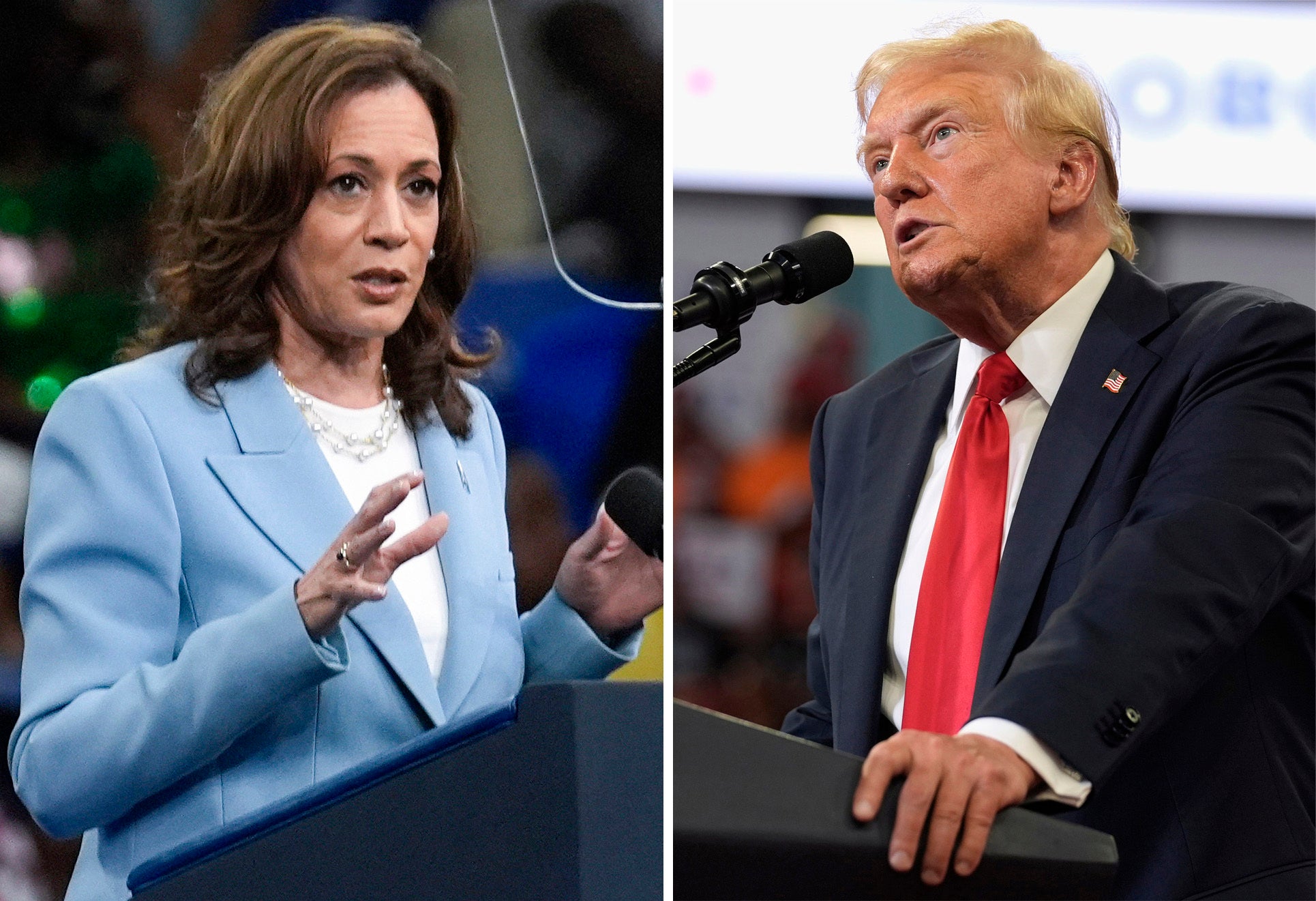These three states will essentially decide the 2024 presidential election
What happens in Pennsylvania, North Carolina and Georgia on November 5 could determine whether Kamala Harris or Donald Trump secures the keys to the White House
The 2024 US presidential election between Kamala Harris and Donald Trump looks set to be an extremely close contest, with the next occupant of the White House all but certain to be chosen by a few thousand swing voters in key battleground states.
The conventional wisdom asserts that there are seven all-important swing states — Pennsylvania, Michigan, Wisconsin, Arizona, Nevada, North Carolina and Georgia — and that Harris can emerge victorious on November 5 if she wins at least the first three to the north.
But, drilling down even further, there’s a case to be made that just three of the seven battlegrounds will actually decide the outcome: Pennsylvania, North Carolina and Georgia.
As Politico columnist Jonathan Martin argues, Harris, the vice president and Democratic presidential nominee, must win Pennsylvania and its 19 Electoral College votes if she is to clear her path to 270, but, should she fail, she could still take the Oval Office if she can secure either North Carolina or Georgia (worth 16 EC votes each) in its stead — provided, that is, that she still takes Michigan and Wisconsin (15 and 10 respectively).
“It comes down to seven battleground states, you got to win four of them in order to carry it,” Republican National Committee Chairman Michael Whatley told the magazine.
“Except if you win Georgia, North Carolina and Pennsylvania, then that’s going to get you over the hump.”
The good news for Harris is that she is currently a cool six points ahead of Trump in Pennsylvania in the latest Quinnipiac University poll, with 51 percent of the vote to 45 percent, and is in front by four points, three points and one point in new surveys from The New York Times, Franklin & Marshall and The Washington Post respectively
Only Marist’s most recent poll finds her tied with Trump and none put the Republican nominee in the lead.
The Californian has certainly focused plenty of campaign energy on the Keystone State, unveiling her running mate Tim Walz in Philadelphia on August 6, touring its western towns with him en route to the Democratic National Convention in Chicago and subsequently returning to Philly to triumph over Trump on the NBC News debate stage on September 10, all of which will have caught the eye of local voters.
But Pennsylvania remains a notoriously tricky state for Democrats to tie up, with Joe Biden winning it by just 80,000 votes four years ago, despite hailing from industrial Scranton and maintaining close ties there throughout his career.

The pundits advised Harris to choose popular state Governor Josh Shapiro as her running mate to help seal the deal before she opted for Walz, and the former remains a powerful advocate for her campaign, speaking impressively on her behalf at the Minnesota governor’s unveiling and again at the party convention last month.
Should Trump ultimately get the better of her, Harris still has a path to the presidency by winning either North Carolina or Georgia, two right-leaning states that Democrats have only won once each so far this century, with Barack Obama picking up the Tar Heel State in 2008 and Biden the Peach State in 2020.
Harris has influential advocates like Governor Roy Cooper in North Carolina and Raphael Warnock and Stacey Abrams in Georgia but even more crucial to her success will be picking up the support of Black men and more moderate conservatives unsettled by Trump.
The vice president addressed Black voters during her panel interview with the National Association of Black Journalists, again in Philadelphia, on Thursday, pointing to her Economic Opportunity Plan encouraging entrepreneurship and acknowledging the need to avoid complacency by assuming any one group’s support, commenting: “Black men are like any other voting group. You got to earn their vote.”
The Republican ticket is, naturally, making its own calculations along similar lines and Pennsylvania and Georgia are the top two states into which Team Trump has invested its TV advertising efforts, also ploughing $17 million into North Carolina last week.
While Trump’s running mate JD Vance, who shot to fame as the author of Hillbilly Elegy (2016), has been energetically touring the southern states, the nominee himself has not visited Georgia since August 3.
He has also created bad blood there by challenging its 2020 election results and publicly feuding with its officials like Governor Brian Kemp and Secretary of State Brad Raffensperger, both Republicans, not to mention Fulton County District Attorney Fani Willis, who indicted him and his allies on racketeering charges.
Trump’s support for the controversial Mark Robinson in the North Carolina gubernatorial race could likewise cost him vital support in such a sensitively poised state.
Join our commenting forum
Join thought-provoking conversations, follow other Independent readers and see their replies
Comments